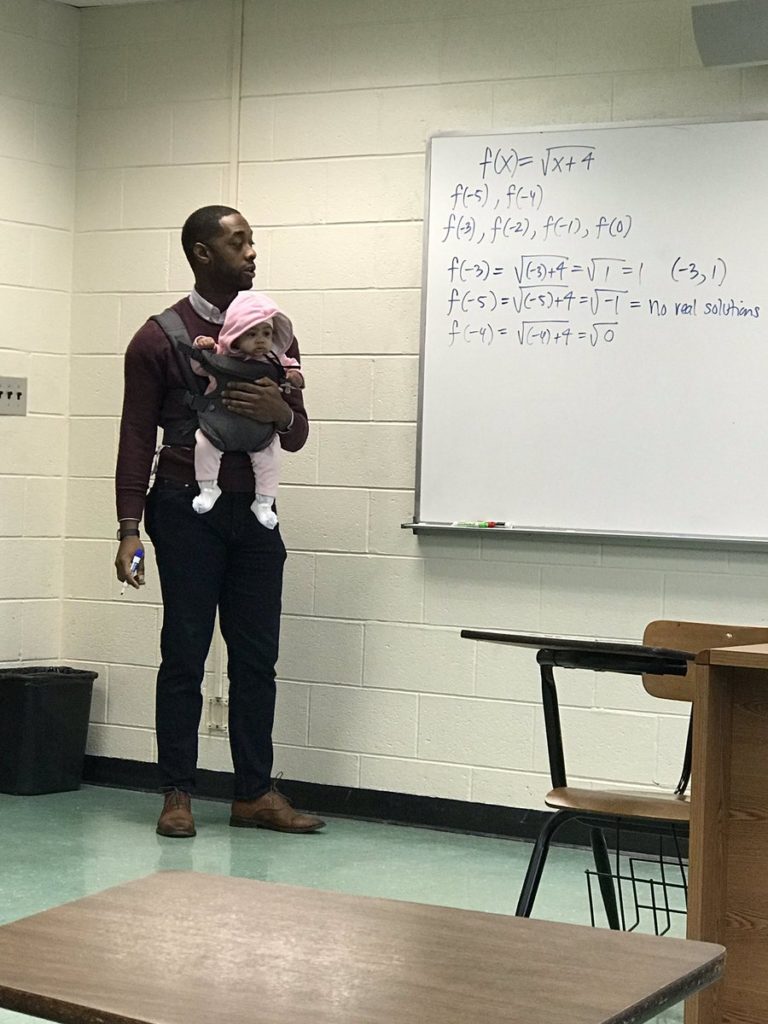
I love this picture! That’s what it looks like to bring home and work together. A professor holding a baby so a dad/student can take notes at Morehouse College. If you’re a working/studying parent, you know the feeling when your childcare plan falls through. And it’s “when” not “if” because kids get sick and stuff happens. It’s inevitable, and it’s a gut punch.
I can still feel it. During a particularly bad week, my husband was in China and the kids were in elementary school. One got sick, the other got lice, and the gerbil died…despite overnight IV antibiotics. Yeah, I know…it was a long shot. My scheduled meetings became conference calls and clients were understanding, but it was not easy. I spent one long, sleepless night writing a “memorandum of understanding” for how my husband and I would shift our time to share duties better at home. When he returned, I wasn’t gracious. To his credit, he listened, understood, helped bury the gerbil, and things got better.
Better still is when we can design work around the kids, so parents aren’t desperately scrambling. Here’s a recent example…My consulting partner, Monica Tanase-Coles was coming from Baltimore to work together with the Cleveland Police. Her husband George was also lending his expertise in human-centered design. What to do with their 5 year-old daughter, Isabella? They could leave her at home with a sitter…or…bring her here. Why not?! We planned our meetings for Presidents’ Day. My teenaged kids didn’t have school and were happy to kid-sit. They took Isabella to the Natural History museum one day and the Children’s Museum the next. Fun was had by all, and work got done, undistracted by worry. We had family dinner and an enjoyable sleepover. Our clients enjoyed meeting the kids. Many of them are moms and dads and grandparents too (and daughters and sons), doing what’s needed for kids (and aging parents) around their shifts. It felt natural.
It’s not always possible to design work around what’s needed at home, but often, it is. Sometimes, it’s just a matter of imagination. We know it feels better. We also know that caring for children, in particular, grows empathy in the brains of adults as well as the kids. I wonder what other stories are out there. Do you have one? Please share.
Photo credit: @Original_Vaughn
Thanks to Monica Tanase-Coles for sharing the article and her wonderful partnership.


